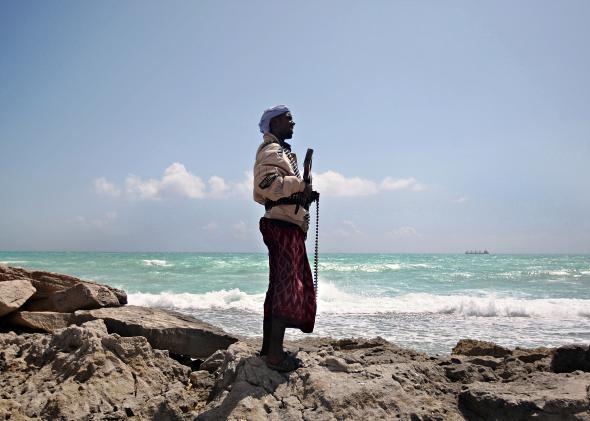Matthew Yglesias is on vacation.
What has investors, a corporate structure, and a great return on investment? Piracy. That is according to a new report from the World Bank, Interpol, and the United Nations.
The report, which was developed after extensive research and interviews of people in the pirate economy, estimates that pirates claimed between $339 million and $413 million in ransoms between April 2005 to December 2012.
The researchers were able to track the money flow not only from investors to raids, but also as it flows through the broader economy. For instance, that $339 million to $413 million they found is being reinvested back into piracy: Pirates use it to hire other pirates and put it into their local communities. The money from successful acts of privacy go back to the financiers, which is in turn used to fuel more activity, both legal and illegal.
Money from piracy ends up not only supporting further piracy, but also enterprises from “human trafficking, including migrant smuggling, and investing in militias and military capacities on land in Somalia.” The investors will even do more than provide financial support—the study says they also offer “direct services,” like accountants and “investment advisors.”
The money also ended up in legitimate businesses, from farming to real estate.
The World Bank report includes two short interviews of captured pirates who support what most of us were already thinking, namely that these pirates—at least the ones who have been arrested—get into piracy out of desperation, as depicted in the recent film Captain Phillips. Conversely, the financiers sound like they’re doing pretty well.
In perhaps the most striking passage, the first pirate told the researchers about his ultimate arrest:
“It was in January this year. Then we went at sea, and got arrested by a British vessel. Somehow it was an escape. For two weeks, the only things I could see were the sky, the sea, the sky, the sea. And I was telling myself: ‘What was I thinking?!’ When I saw the Brits, I was happy…”
Both interviews followed similar narratives: fishing to unemployment to desperation to an offer.
One more highlight from the report is that law firms play a much more active role than I would have expected; apparently they “can become involved within 30 minutes of a hijacking,” and they can end up doing everything from working with the families of the crew to actually conducting the negotiations with the pirates. Interestingly, ransom payments actually expose the company and the firms to liability. Talk about a rock and a hard place.
